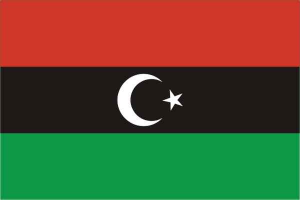Language/Libyan-arabic/Grammar/Pronouns
Hi Libyan Arabic learners! 😊
In this lesson, we will learn about pronouns in Libyan Arabic. Pronouns are essential to any language, as they are used in place of nouns to avoid repetition, and to refer to people or things previously mentioned.
Finish this lesson and explore these related pages: Questions, Plurals, How to Use Have & How to Use Be.
Personal Pronouns[edit | edit source]
Personal pronouns are used to refer to people or things, and they change depending on gender, number, and whether they are the subject or object of the sentence.
| Libyan Arabic | Pronunciation | English |
|---|---|---|
| أنا ana | əna | I/me |
| نحن naħnu | naħnu | We/us |
| انتَ inta | inta(m) | You (singular, male) |
| انتِ inti | inti(f) | You (singular, female) |
| أنتما intuma | intuma | You (dual) |
| انتم intum | intum | You (plural) |
| هو huwa | huwa | He/him |
| هي hiya | hiya | She/her |
| هُم hum | hum | They/them (male or mixed group) |
| هُنَّ hunn(a) | hunn(a) | They/them (female) |
Example dialogue:
- Person 1: أنا قعدت في المكتب. (Ana ʕʔadt f-el maktəb.) - I sat in the office.
- Person 2: إنتِ ما رحتيش للبقالة؟ (Inti ma rħtish l-el baħāla?) - Didn't you go to the grocery store?
Note that in Libyan Arabic, the second person singular pronoun has different forms for male and female.
Demonstrative Pronouns[edit | edit source]
Demonstrative pronouns are used to indicate which noun or nouns they refer to, and can be either proximal (near the speaker) or distal (far from the speaker). In Libyan Arabic, demonstrative pronouns change depending on gender and number.
| Libyan Arabic | Pronunciation | English (proximal) | English (distal) |
|---|---|---|---|
| هَذا ḥaða | (m) ḥaða, (f) ḥāði | This (m), This (f) | That (m), That (f) |
| هَذِهِ ḥāðihi | ḥāðihi | This (f) | That (f) |
| هُمَا humā | humā | These | Those |
| هُم hum | hum | These (m), These (mixed group) | Those (m), Those (mixed group) |
| هُنَّ hunn(a) | hunn(a) | These (f) | Those (f) |
Example sentences:
- هَذِهِ الكتاب مُفيدة. (Ḥāðihi l-kitāb mufīda.) - This book is useful.
- خدّي هُنَّ إلى الفصل. (Ḫiddi hunn(a) ʔila el-faSəl.) - Take those (f) to the classroom.
Possessive Pronouns[edit | edit source]
Possessive pronouns are used to show possession of people or things. In Libyan Arabic, they are formed by adding a suffixed pronoun to a noun or a possessive adjective.
| Libyan Arabic | Pronunciation | English |
|---|---|---|
| ليّ lī | liː | Mine |
| لَكَ laka | laka(m) | Yours (singular, male) |
| لَكِ laki | laki(f) | Yours (singular, female) |
| لَكُمَا lakumā | lakumā | Yours (dual) |
| لَكُم lakum | lakum | Yours (plural) |
| لَهُ lahu | lahu | His |
| لَهَا lahā | lahā | Hers |
| لَهُمَا lahumā | lahumā | Theirs (dual) |
| لَهُم lahum | lahum | Theirs (male or mixed group) |
| لَهُنَّ lahunn(a) | laḥunn(a) | Theirs (female) |
Example sentences:
- هاذا الكتاب لِي. (Hāða l-kitāb lī.) - This book is mine.
- كمان أنتوا مُمكن تستلموا الحقيبة لَكُم. (Kamān 'ntū mumkin tastalamū l-ḥaqība lakum.) - You all can also pick up the suitcase, yours (plural).
Interrogative Pronouns[edit | edit source]
Interrogative pronouns are used to ask questions. In Libyan Arabic, the interrogative pronouns change depending on gender and number.
| Libyan Arabic | Pronunciation | English |
|---|---|---|
| مَن man | man | Who |
| شَنَّوْ šanna(w) | ʃannā(w) | What |
| وِين wein | wein | Where |
| لِيش liš | liʃ | Why |
| آش āš | ʔāš | What (in Tripolitanian dialect) |
Example sentences:
- لِيش ما جِت؟ (Liš ma jit?) - Why didn't you come?
- شَنَّوْ قاعد في الحمّام؟ (Šannā wqaʕd f-el hammām?) - What are you doing in the bathroom?
Remember to practice these pronouns regularly to become more confident in using them. To improve your Libyan Arabic Grammar, you can also use the Polyglot Club website. Find native speakers and ask them any questions!

